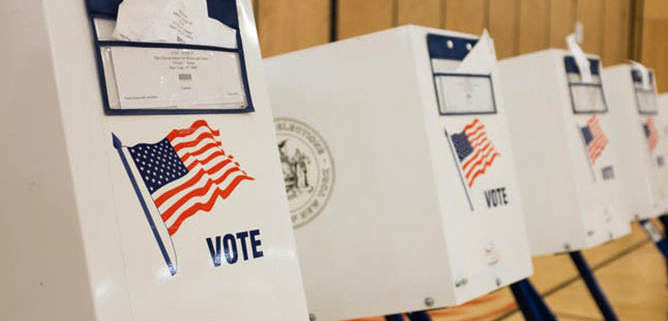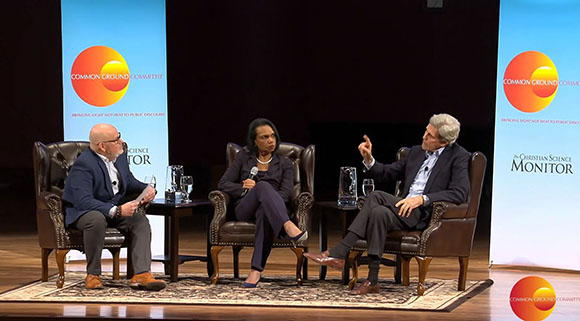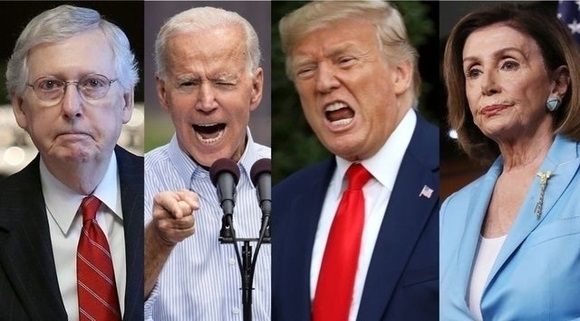Opinion: Laws should unite, not divide
In this piece written for The Hill, Common Ground Committee co-founders Bruce Bond and Erik Olsen make the case that laws should unite, not divide. You can also listen to a behind-the-scenes conversation with the authors below.
For the past decade-plus, we have made it our mission to improve political discourse through our nonprofit, Common Ground Committee (CGC). That mission hit a speed bump with Texas Senate Bill 8 (SB 8). As heads of a non-partisan organization, we don’t take a position on whether abortion should or should not be legal, but we recognize the strong moral concerns held by both sides. We even understand how it is that the Texas legislature would think this legislation is a good idea. But SB 8 sets a dangerous precedent and unnecessarily adds even deeper divisiveness to an already contentious issue.
By putting enforcement into the hands of private citizens, and offering a significant financial incentive, the Texas legislature is effectively weaponizing disagreement.
Other states are following the Texas lead — Florida just introduced its own SB 8-inspired abortion bill. If this strategy proves successful, what would stop liberal-leaning states from passing similar restrictions on gun ownership? We wager that supporters of SB 8 would not approve.
Disagreement is fundamental to a healthy democracy. But when lawmakers are determined to take whatever means necessary to achieve their outcomes, we end up with laws like SB 8.
If we are to function as a healthy society, all citizens — no matter their political leanings — should speak out against laws that are designed to pit citizens against each other. We have plenty of laws that by their nature generate passionate debate. But deliberately designing into legislation the ability for citizens on one side of an issue to economically hurt fellow citizens on the other side will almost certainly inflame factional conflict and deepen even further the divisions that plague our nation.
To be sure, it is an open question as to whether the Texas law will stand, despite the Supreme Court’s “shadow docket” ruling, as evidenced by the ongoing court battle. But even if the Texas strategy is ultimately deemed unconstitutional, it did not occur in a vacuum; rather, the bill reflects a wider tendency by legislators to craft laws that reflect only the viewpoint of the majority. In short, it’s exactly what James Madison and the Founders were fearful of when they spoke of “tyranny of the majority.” It’s how we wound up with legislation like the “For the People Act” or the “Tax Cuts and Jobs Act of 2017” — laws crafted with no input from the minority that effectively encourage bitter debate by the very nature of their partisan leanings, even if they aren’t signed into law.
Turning citizens into the enforcers is a natural evolution of this trend.
If Americans took the time to talk to one another, they would find the people they demonize are not morally bankrupt. In fact, they might have more in common than they think — even on issues as divisive as abortion. A 2016 poll from Gallup found that a majority of pro-choice and pro-life Americans agreed on 9 of 17 points, including making abortion illegal in the third trimester and making it legal in the case of rape and incest.
This doesn’t mean Democrats and Republicans will suddenly abandon their principles on abortion — for both sides it will always be a question of right and wrong born out of deeply held values. But conversation lets us see the other side as actual, reasonable human beings who arrived at their beliefs through their own experiences. Laws like SB 8 can only exist when legislators stay in their own bubbles and see a difference of opinion as a moral flaw. We need to burst those bubbles and elect leaders who are open to the idea that their perspective is not the end of the discussion.
Prior to the 2020 elections, we released the Common Ground Scorecard, a tool to help Americans see how likely members of Congress and candidates were to find common ground. The average score for all of Congress is 29/110. To put that into perspective, the average score for members of the House Problems Solvers Caucus is 55/110. As primary season fast approaches, these are the types of legislators we need doing business in Congress.
“If we took the same approach to our personal relationships that some members do to Congress, we wouldn’t have any functional relationships in our lives,” said Rep. Brian Fitzpatrick (R-Pa.), a member of the House Problem Solvers Caucus, in a past episode of our podcast series “Let’s Find Common Ground.” Fitzpatrick’s Democratic counterpart Rep. Abigail Spanberger (D-Va.), said she has no interest in voting for a law that is everything she wants but has no chance of passage. For these two legislators, collaboration means progress, and progress overrules party.
SB 8 is a preview of what could come if politicians continue to let partisanship dominate the legislative process.
We are on a dangerous path, but it’s not too late to change course. We as citizens must stand up and push back against legislators who seek to divide us with laws and, if necessary, replace them with those who seek to unite us by finding the common ground that enables good legislation.
– This article was originally published in The Hill on October 15, 2021.







 Voters need a new mindset that makes willingness to find common ground a “must have” quality for any candidate.
Voters need a new mindset that makes willingness to find common ground a “must have” quality for any candidate.







